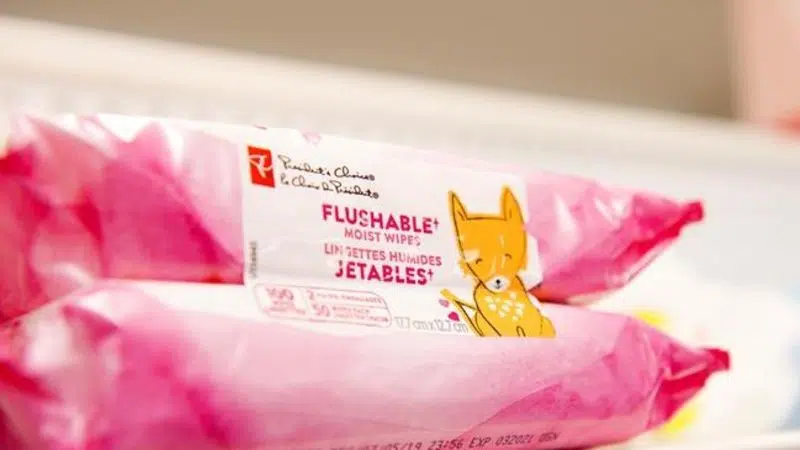
Enviro group asks Competition Bureau to probe claim of flushable’ wipes
OTTAWA — Friends of the Earth Canada wants the Competition Bureau to investigate a recent study it says proves there is no such thing as a “flushable” wipe.
“This is the most outrageous greenwashing I’ve seen in a long, long time,” said Friends of the Earth CEO Beatrice Olivastri.
The organization, represented by lawyers at EcoJustice, is filing an application for an inquiry with the Competition Bureau, citing a recent Ryerson University study that tested 23 wipes labelled as “flushable.” Researchers found none of them actually lived up to that claim.
